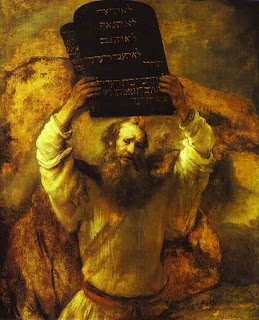Several years ago I sat in a movie theater with my then three-year-old son and my father. I couldn’t get over the fact that all three of us were enjoying the same movie so much. Each of us represents a different generation and therefore has different tastes and different senses of what is funny. But we each enjoyed sitting in that theater for two hours watching the animated feature “Shrek the Third” on the big screen. We each found the movie entertaining, humorous, and memorable. The “Shrek” series has succeeded in entertaining a multi-generational audience through its fun story and animation for the kids that includes puns and humor aimed at adults.
Just as “Shrek” has encouraged multi-generational enjoyment at the movie theater, the “Harry Potter” book series has fostered multi-generational literary enjoyment and commitment to reading. Author J.K. Rowling has created books that appeal to very young children as well as sophisticated adults. Parents have found as much pleasure in these tales of wizards and sorcerers as their kids. And the bond that is created when parent and child can discuss literature together is priceless.
The three “Shrek” movies and the “Harry Potter” novels share a strong connection in several important ways to this week’s Torah portion, Parashat Balak. The most striking connection between the animation and the parashah, of course, is the talking donkey in the Torah narrative. The link between “Harry Potter” and the parashah is in the magic, spells, curses, and sorcery.
When Balak, the King of Moab, saw the Israelite victory over the Amorites, he was alarmed. He commissioned Balaam, the world’s most powerful wizard, to put a curse on the Israelites for Balak to drive them out of the land. God tried to dissuade Balaam from cursing the Israelites, a people blessed from the time of the Patriarchs, whose divine blessing cannot be reversed. Balaam refused but was later asked to reconsider his mission. God allows him to proceed so long as he does what God tells him.
Riding his donkey, Balaam comes upon an angel of God but does not want to stop. The donkey thinks otherwise and is beaten for trying to break for God’s messenger, whereupon God opens the donkey’s mouth for the donkey to verbally berate Balaam. Balaam then offers three oracles of blessing to the Israelites, including the well-known blessing, “How fair are your tents O Jacob, Your dwellings, O Israel.”
There is much to be learned from this narrative. Most notably is the power of God to ensure that the Israelite nation remains blessed no matter how badly someone wants to curse them. What is remarkable about the story, however, is that appeal it has to both young and old. The basic story of a magician riding a talking donkey who is hired to curse a people seems to be taken right from a fairy tale. However, the deeper concept (the subtext) of the story is a powerful theological statement about the omnipotence of God and the eternally blessed nature of the people Israel.
In the brilliance of the Torah, the narrative captivates diverse generations just as the “Shrek” movies and the “Harry Potter” series do. There is truly appeal for everyone. This is a lesson for us. We need to make Torah study in particular and Judaism in general attractive to young and old alike. We do this with our Passover seders each year and we should strive to do it year round.
There are “Shivim Panim LeTorah” (seventy faces of the Torah) meaning that the Torah can be interpreted in a plethora of ways. This also means that there are enough ways to make the Torah accessible and captivating to all ages. Some stories of the Torah might already be written as exciting narratives for young people as well as adults, such as the Flood, the tales of our Patriarchs and Matriarchs, and the Exodus. Some, like the Balak narrative, might even have all the elements of a fantasy. For those sections of the Torah that do not automatically present themselves as intriguing for young people, it is up to the adults to translate the text into exciting drama. Through midrash, many texts have already come to life for our youth.
If you haven’t already seen the Shrek movies, go see them. And even if you’ve seen them, I encourage you to see them again with your children and/or grandchildren so that we may all seek out the multi-generational appeal of Talmud Torah. When the different generations spend time being entertained and learning together, in the words of our Torah, our people and dwellings will truly be blessed.


